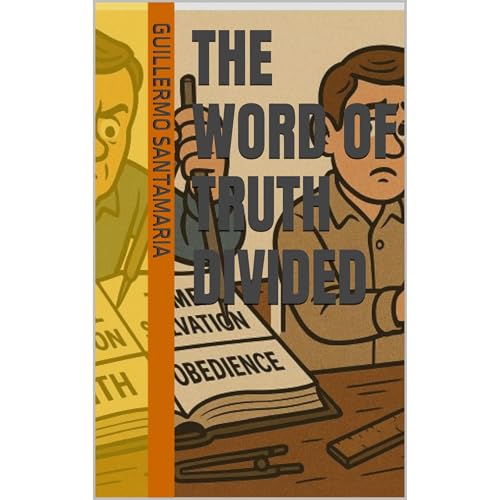
THE WORD OF TRUTH DIVIDED
No se pudo agregar al carrito
Add to Cart failed.
Error al Agregar a Lista de Deseos.
Error al eliminar de la lista de deseos.
Error al añadir a tu biblioteca
Error al seguir el podcast
Error al dejar de seguir el podcast
Compra ahora por $3.99
-
Narrado por:
-
Virtual Voice

Este título utiliza narración de voz virtual
The phrase “rightly dividing the word of truth” (2 Tim. 2:15) has a long interpretive history. The original Greek word orthotomeō means “to cut straight,” as in building a road. The Septuagint uses it for “making paths straight” (Prov. 3:6; 11:5). Early Fathers like Chrysostom read it as teaching faithfully, not partitioning scripture. Jerome’s Vulgate gave “rightly handling,” and Wycliffe, Tyndale, and the Geneva Bible transmitted it into English, with the KJV fixing the phrase “rightly dividing.”
In the 19th century, Darby and Scofield redefined it as a command to divide scripture into dispensations, making it a cornerstone of dispensational theology. Old School Baptists, however, rejected this: Beebe, Trott, and Bartley taught it meant distinguishing law and gospel, truth and error, Spirit and flesh.
Conditionalist Primitive Baptists (Potter, Hassell, Cayce, Hunt) turned the verse into proof of their doctrine of “time salvation,” arguing that ministers must distinguish between eternal salvation (unconditional) and temporal salvation (conditional obedience, fellowship, peace). Absoluters rebutted this, insisting the Bible never teaches two salvations.
The phrase time salvation itself did not appear before the late 19th century. By the early 20th century it was entrenched among Conditionalists. They compiled a set of verses—Phil. 2:12; 1 Tim. 4:16; Acts 2:40; James 5:20; etc.—which they consistently labeled “time salvation” texts, while Absoluters denied this category.

